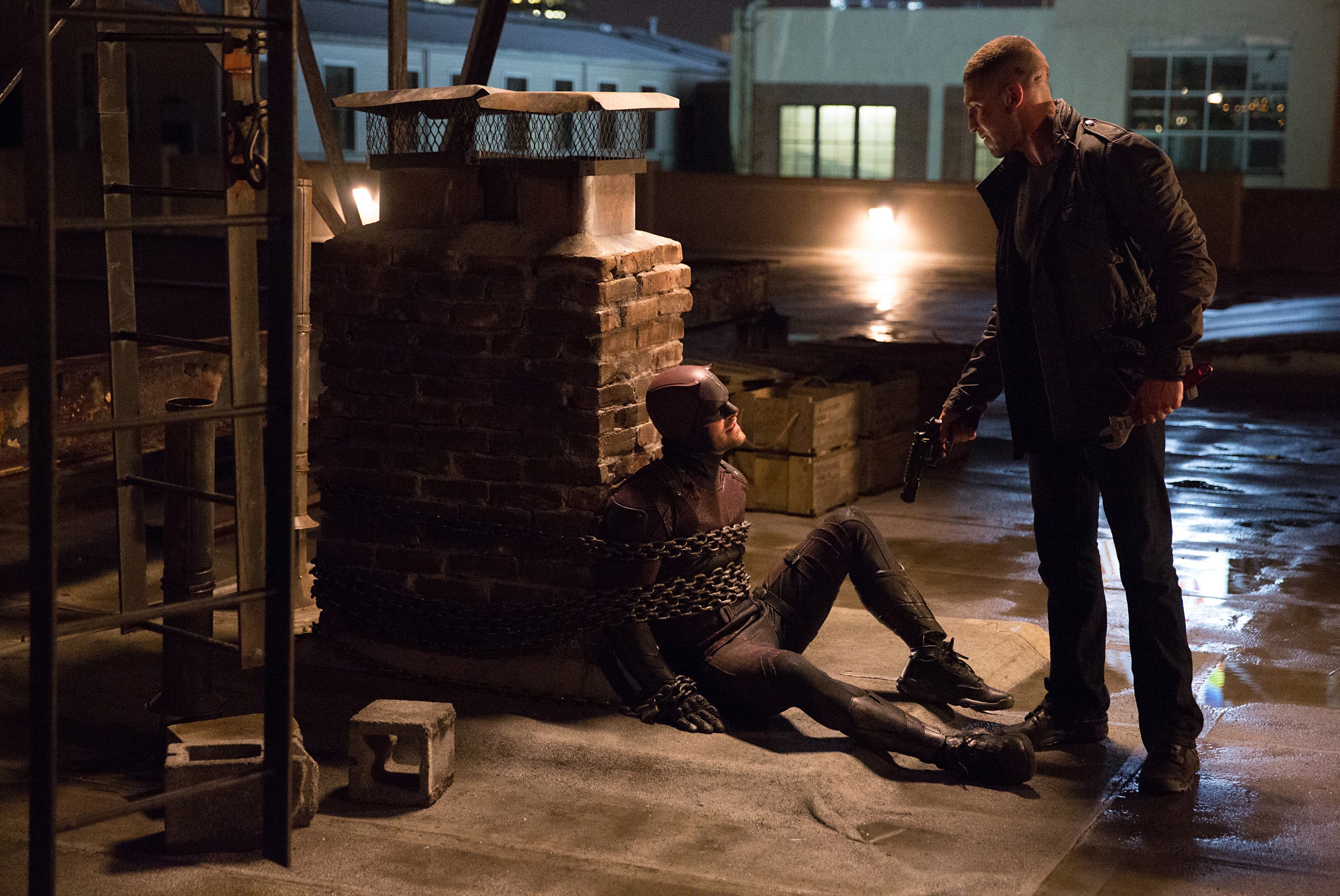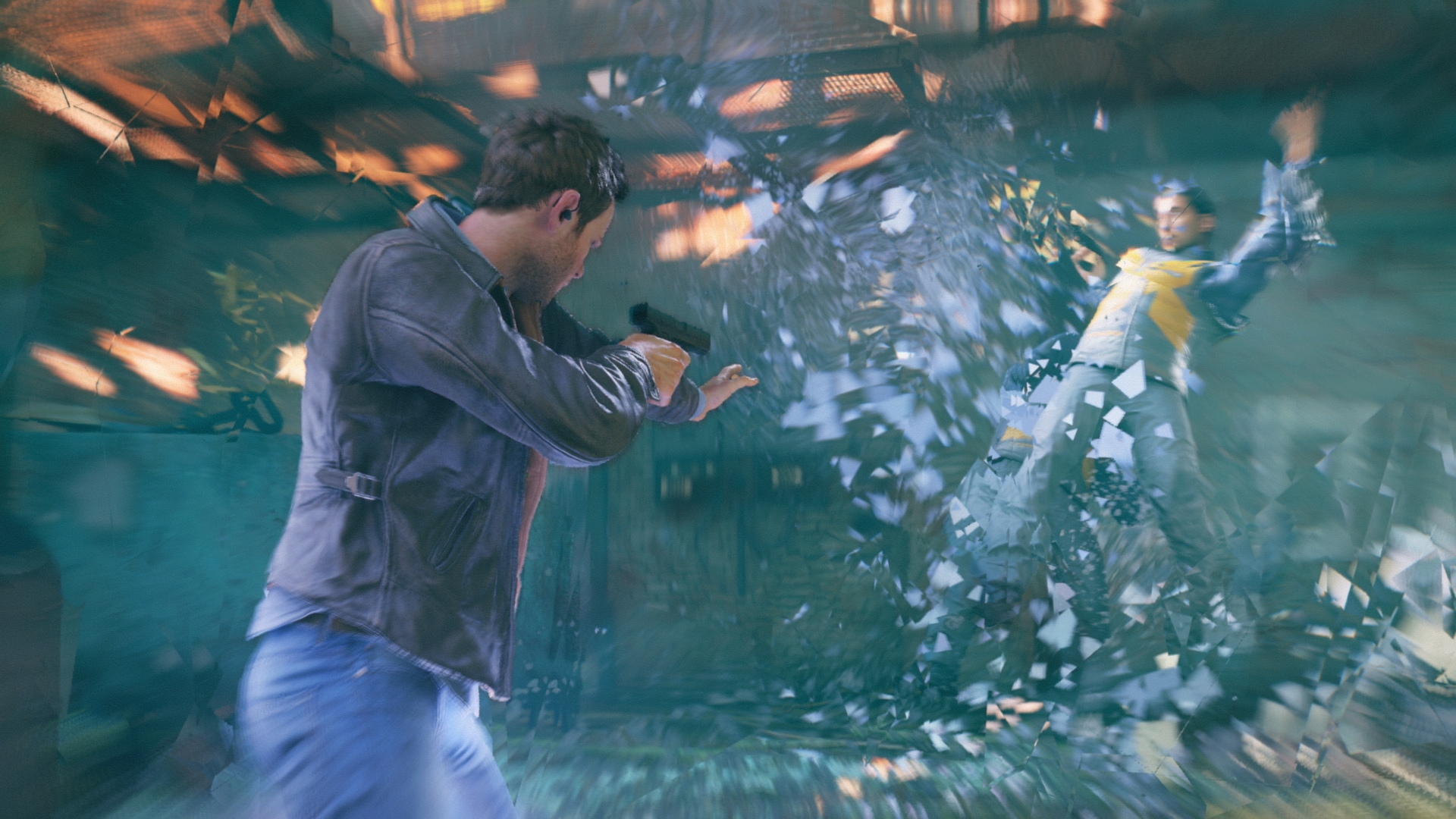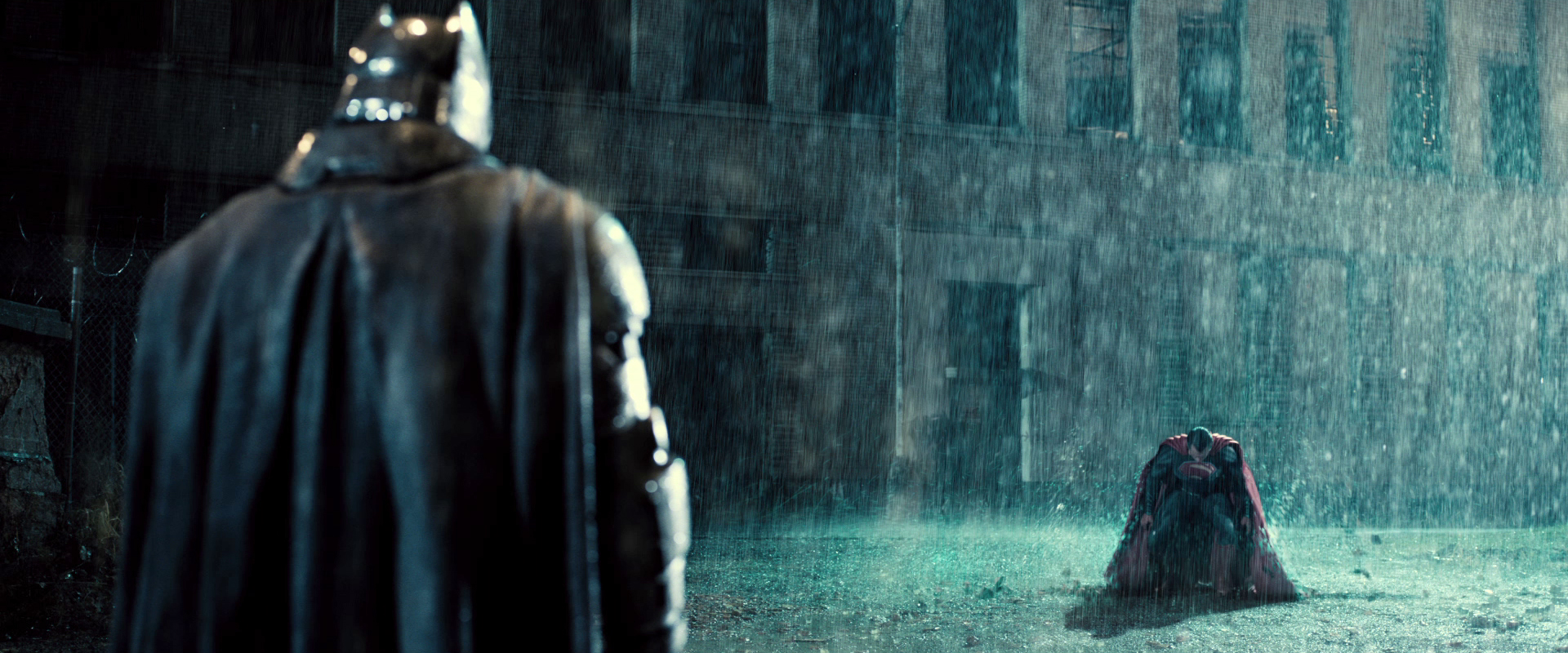
Despite their tonal differences, the first season of Daredevil had a lot in common with the original Iron Man movie. Both were entertaining and well-received, made the public-at-large care about long-ignored central characters, and opened the door for a whole cinematic or televised universe. I guess, then, that it’s not too surprising to see season 2 of Daredevil reflect so many of the flaws seen in Iron Man 2. Each sequel splinters its narrative in order to service the storylines of future movies/TV series’, and neither holds together particularly well as its own thing.
The most problematic storyline in Daredevil’s second season is the rise of The Hand. No matter how big we’re told the stakes are, it’s simply hard to care about a clan of ninjas looking for a ‘weapon” called black sky that will give them unlimited power (or perhaps REAL Ultimate Power) The writers try to get our attention by tying in minor season 1 characters Stick and Nobu, but the whole thing just feels divorced from the world set up in the show’s first year. I’m sure that The Hand will play a big role in the Defenders series that will eventually premiere on Netflix, but they’re just not interesting here, and devoting the majority of this season to glorified foreshadowing was not the right call.



